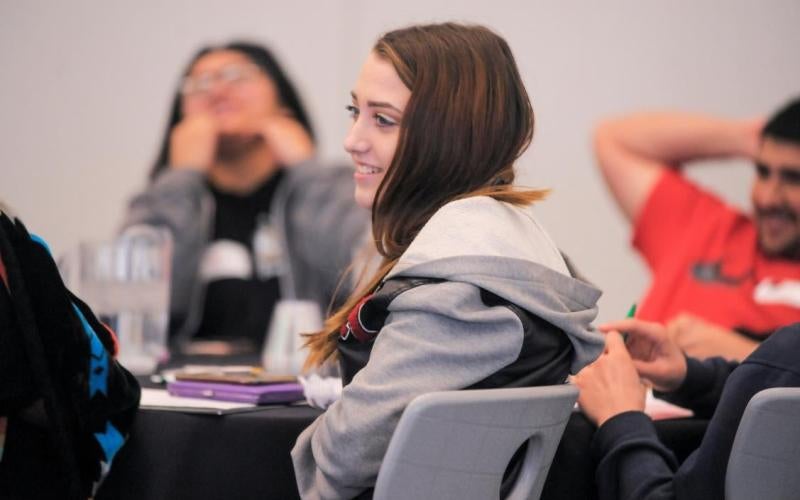
AWC awarded TRIO Upward Bound grant to help low-income, potential first-generation college students access higher education
August 31, 2022Upward Bound will provide five years of services to help approximately 350 students in Yuma and La Paz counties find their path to college
Yuma, AZ (August 31, 2022) – The U.S. Department of Education announced this summer that Arizona Western College was successful in securing funding to continue the operation of its TRIO Upward Bound grant for an additional five years starting in September of 2022. The amount of the grant for the five years is $1.7 million, to help low-income students who would be the first members of their families to earn college degrees to prepare for and enroll in college. The Upward Bound program will serve approximately 350 students in Yuma and La Paz counties over the course of the five-year grant. The program supports students at Cibola, Kofa, Parker, San Luis, and Yuma high schools and will now also provide services for Gila Ridge High School students. Arizona Western College has had a TRIO Upward Bound Program since 1999.
Now one of eight Federal TRIO Programs, Upward Bound, was the country’s first federal program to prepare low-income students for college. Upward Bound provides college preparation to students who are between the ages of 13 and 19, and have a need for academic support in order to pursue postsecondary education. All Upward Bound students must be either from low-income families or potential first-generation college students. The program requires that two-thirds of the participants in a program must be both low-income and potential first-generation college students. The remaining one-third must be either low-income or potential first-generation college students. Upward Bound provides academic instruction in mathematics, laboratory sciences, composition, literature, and foreign languages during an annual 6-week residential summer camp held on the Arizona Western College campus. Tutoring, counseling, mentoring, cultural enrichment, work-study programs, and education or counseling services designed to improve the financial and economic literacy of students are provided throughout the school year. Despite enormous challenges unique to a low-income environment, Upward Bound participants are three times more likely to complete a college degree in six years than those who did not participate in college access services, according to the Pell Institute, a non-profit educational research organization.
Many Upward Bound alumni have gone on to great success; among the millions of alumni who got their start through the program are: two-time Oscar nominee Viola Davis; best-selling author Wil Haygood; ABC Primetime host John Quinones and a varied list of astronauts, judges, scientists, politicians, actors, musicians, scholars, inventors, and entrepreneurs.
Upward Bound began in 1964 as part of President Lyndon Baines Johnson’s War on Poverty. It was the first of eight federal “TRIO” programs authorized by the Higher Education Act to help college students succeed in higher education. It recognizes that students whose parents do not have a college degree have more difficulties navigating the complexity of decisions that college requires for success, bolsters students from low-income families who have not had the academic opportunities that their college peers have had, and helps remove obstacles preventing students from thriving academically.
Michelle Thomas, the Director of TRIO Programs at Arizona Western College, stated, “The Upward Bound Program tremendously helps students grow academically, socially, and emotionally as they progress through high school on their way to higher education.”
“As systemic inequality and financial hardship discourage students from succeeding in college, TRIO programs like Upward Bound take on new importance because they continue to help students who are low-income and first-generation to earn college degrees,” said Maureen Hoyler, president of the non-profit Council for Opportunity in Education (COE) in Washington, D.C. COE is dedicated to furthering the expansion of college opportunities for low-income, first-generation students, and students with disabilities nationwide.
Contact:
Michelle Thomas
Director of TRIO Programs
Arizona Western College
Michelle.Thomas@azwestern.edu
(928) 344-7763
